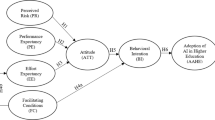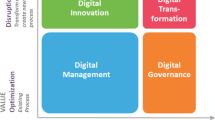Abstract
Recently, as the incidents of the security breach and the personal information leakage in public institutions and the major information/communication infrastructure have increased, the importance of the development and training of human resources specialized in cybersecurity, who can immediately respond to this are emphasized. Accordingly, the government has announced policies for the development of human resources, established and operated public sector cybersecurity training centers; however, there is no method for understanding the investment performance and effect of the present cybersecurity education/training in the public sector. For the establishment of a training system and the quality control of continuing education, a method for evaluating the performance of the training is needed, and this can prove the justification of the promotion of the training program and the sustainability of the training center. The goal of this study is to analyze the outcome of education and training in the field of information security and economic return on investment. For this purpose, through literature research on the outcome of the domestic and overseas education and training, this study drew a model that can apply.


Similar content being viewed by others
References
Lee, A.: Authentication scheme for smart learning system in the cloud computing environment. J. Comput. Virol. Hacking Tech. 11(3), 149–155 (2015)
Curado, C., Martins Teixeira, S.: Training evaluation levels and ROI: the case of small logistics company. Eur. J. Train. Dev. 38(9), 845–870 (2014)
Stufflebeam, D.L.: Toward a Science of Educational Evaluation. Educational Technology Publication, Englewood Cliffs (1973)
Kirkpatrick, D., Kirkpatrick, J.: Evaluating Training Program: The Four Levels, 3rd edn. Berrett-Koehler Publishers, San Francisco (2006)
Bushnell, D.S.: Input, process, output: a model for evaluating training. Train. Dev. J. 44(3), 41–44 (1990)
Lee, H.J., Cha, Y.J.: A study on the effectiveness of privacy education using the CIPP model: focusing on the perceptions of local government officials. Korean J. Local Gov. Stud. 19(1), 95–119 (2015)
Lee, H.J., Lee, H.C., Cha, Y.J.: A study on the performance of privacy education in local government: focused on Kirkpatrick model. Korean J. Local Gov. Stud. 24(1), 173–196 (2015)
McLaughlin, J.A., Jordan, G.B.: Using logic models. In: Handbook of practical program evaluation, pp. 7–32. Jossey-Bass Inc., San Francisco (2004)
Kim, J.H., Lee, K.H.: Vulnerabilities of intelligent automobiles using TPEG update based on T-DMB and its countermeasures. J. Comput. Virol. Hacking Tech. 11(3), 143–148 (2015)
Phillips, J.J.: Handbook of Training Evaluation and Measurement Methods. Routledge, New York (1997)
Korea Internet & Security Agency: National information security white paper. Ministry of Science, ICT and Future Planning (2016)
Choi, M.K., Han, K.S.: A study on the service quality of SMEs management consulting affecting the perceived management performance in mobile communication environments. J. Comput. Virol. Hacking Tech. 10(2), 145–156 (2014)
Rafiq, M.: Training evaluation in an organization using Kirkpatrick model: a case study of PIA. J. Entrep. Organ. Manag. 4, 151 (2015)
Grossman, R., Salas, E.: The transfer of training: what really matters. Int. J. Train. Dev. 15(2), 103–120 (2011)
Toth, P., Klein, P.: A Role-Based Model for Federal Information Technology/Cybersecurity Training. NIST Special Publication 800-16, Gaithersburg (2014)
Warr, P., Bird, M., Rackham, N.: Evaluation of Management Training. Gower Press, London (1970)
Sorensen, S.E.: Comprehensive return on investment evaluation system for local self-government training in Bosnia and Herzegovina—case: project cycle management course. Perform. Improv. 54(1), 14–27 (2015)
Goh, Y.S.: Design of the procedural ROI process model for human resource programs. Korean Soc. Educ. Technol. 21(2), 153–186 (2005)
Kim, Y.T., Jeong, Y.S.: A token-based authentication security scheme for Hadoop distributed file system using elliptic curve cryptography. J. Comput. Virol. Hacking Tech. 11(3), 137–142 (2015)
Acknowledgements
This research was supported by the Basic Science Research Program through the National Research Foundation of Korea funded by the Korean Government (NRF-2011-0025512). This work was supported by the Ministry of Education of the Republic of Korea and the National Research Foundation of Korea (NRF- 2015S1A5A2A01009763). This study was carried out with the support of ‘R&D Program for Forestry Technology (Project No. 2016004C10-1619-AB01)’ provided by Korea Forest Service.
Author information
Authors and Affiliations
Corresponding author
Rights and permissions
About this article
Cite this article
Park, SK., Lee, SH., Kim, TY. et al. A performance evaluation of information security training in public sector. J Comput Virol Hack Tech 13, 289–296 (2017). https://doi.org/10.1007/s11416-017-0305-7
Received:
Accepted:
Published:
Issue Date:
DOI: https://doi.org/10.1007/s11416-017-0305-7




